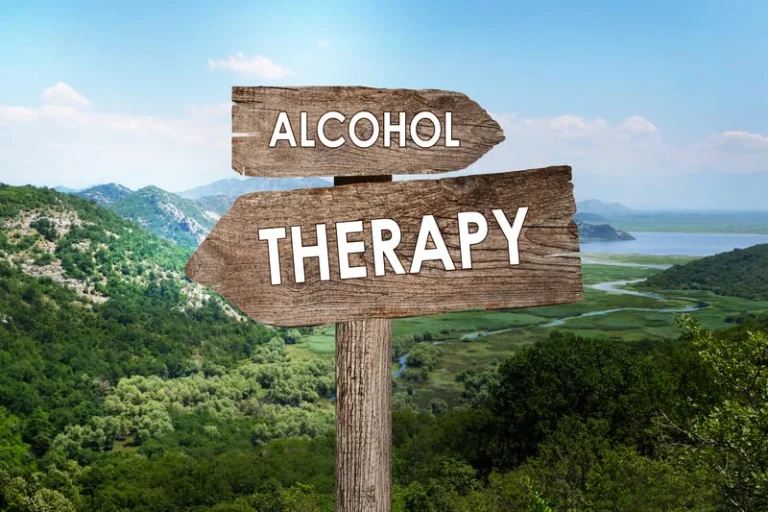
The mission of NARR is to support persons in recovery from addiction by improving their access to quality recovery residences through standards, support services, government and private sector collaboration, education, research, and advocacy. Recovery residences are important assets within a community and among recovery-oriented systems what is a recovery residence of services. Residences that meet and maintain the NARR Standard ensure that this resource continues as a viable asset for the people who need it. Further, certified residences promote a level of consistency across houses that has not been previously seen or understood by communities, decision-makers, funders, and researchers.
What is the Social (Experiential) Model?
Using data driven models, we provide solutions that can truly make a long-lasting difference for those we serve. Recovery residences, formerly known as sober living homes, are privately-owned homes or complexes that provide housing for adults with a substance use disorder (SUD) or co-occuring disorder. We envision all persons in recovery from addiction having access to the recovery support they need to live happier, healthier lives. We believe everyone should have a safe, supportive and nurturing home environment in early recovery. NARR values the cultivation of supportive, recovery-oriented environments where individuals can share experiences and offer mutual support, fostering a sense of belonging and collective strength.

Darrell Mitchell President
As president of NARR, Darrell Mitchell exemplifies transformative leadership within the recovery residence sector. He has played a significant role in advancing recovery housing standards both statewide and nationally as the founder of the Indiana Affiliation of Recovery Residences (INARR). A pivotal advocate for legislative progress, Darrell was instrumental in embedding Recovery Housing standards into Indiana law in 2017—a landmark achievement in the advocacy for recovery residences. Darrell’s educational background from Purdue University and advanced degrees in Addictions Counseling and Business Administration from Indiana Wesleyan University underpin his comprehensive approach to leadership within the recovery community. Darrell’s involvement in various boards and councils further reflects his dedication to enhancing recovery support frameworks.
Joel Bagley Board Member
Level I recovery residences maintain a recovery-supportive culture and community using house rules and peer accountability. Your support directly contributes to the expansion of safe, quality recovery residences nationwide, making a lasting impact on individuals and families on their journey to healing. To support persons in recovery by improving their access to safe, stable residences with peer and community support. Erin Helms brings her profound expertise in chemical dependency counseling and her passion for the recovery community to her role as Secretary for NARR and Executive Director at The Woodrow Project. With a Master’s degree in Addiction Counseling from the Hazelden Graduate School and a solid foundation from The Ohio State University, Erin’s journey has been marked by significant contributions across public health and addiction counseling.
- Recovery residences house individuals who seek a living environment focused on the whole-person approach to recovery and are actively receiving Outpatient Treatment or Recovery Services under BHS SUD contract or recovery services.
- They serve individuals that are currently receiving outpatient SUD services or are enrolled in recovery services.

Living with others that are successful, demonstrates to them that it is possible and helps them reach that point. Recovery residences provide a recovery-focused home environment free of illicit drug and alcohol use. Individuals participating in community-based Medication-Assisted-Treatment (MAT) are welcomed by RRA members and encouraged by the Recovery Residence Association to utilize our housing directory to find a home that best meets their housing needs. In this study, the panel members leveraged their expertise in recovery residence research and policy to develop a research agenda for the immediate future, while making relevant recommendations to policy makers, clinical program staff, and interested lay individuals. In this policy statement, an expert panel reviews what is known about recovery residences, while identifying major gaps in the knowledge base. This overview results in a sprawling agenda that spans needs in recovery residence research, policy, and advocacy in the years to come.
Collaborative Partners
The consistency of core elements across certified residences can provide peace of mind to residents, families, neighbors, legislators, and funders, without additional oversight. NARR utilizes evidence-based standards and ethical guidelines to assist dozens of state affiliates in certifying and managing recovery residences across the continuum of care. We partner with state agencies and recovery community organizations to advocate for the adoption of our high-quality housing standards at both state and national levels. The NARR model lays the groundwork for recovery housing policies, practices, and services, offering those in recovery the chance for a sustainable and fulfilling life. Whitney Lehman’s career is distinguished by her leadership and advocacy within the recovery community.

As a founder of Purple Inc. and a key figure in the formation of NARR, Joel has been a steadfast advocate for recovery residences nationwide. Additionally, Joel extends his support to small business owners as a certified coach, merging his expertise in communication, counseling, and business to inspire and guide heart-centered businesses. The NARR Standard provides guidance for certifying recovery residences as effective and safe environments that support each individual’s recovery goals. Level III / Type S (Supervised) delivers weekly, structured programming including peer-based and other recovery support services (e.g. recovery and resiliency groups or person-driven recovery plans) and life skills development programming (e.g., job readiness or budgeting). Level III’s are designed to support populations who need more intense support in developing recovery capital than provided by Level I or Level II. Level III’s are required to be licensed in a few states, reflecting the therapeutic nature of the services provided.
Mission Statement:
We operate in partnership with a network of state-level affiliate organizations which implement NARR’s standards and programs in their states. Level IV Type C (Clinical) integrates the social and medical model typically using a combination of supervised peer and professional staff. In addition to peer-based recovery support, recovery support services, and life skills development, Level IV’s offer clinical addiction treatment. While all Level IV residences are licensed treatment programs, not all licensed treatment programs would qualify as a social model-based Level IV recovery residence.
- Dr. Ashley E. Stewart stands at the forefront of diversity, inclusion, and social work, focusing her research on identity, structural oppression, and recovery health equity.
- NARR prioritizes educating providers, residents, and the broader community about the recovery process, the role of recovery residences, and the importance of standards to enhance support for recovery journeys.
- His personal experience with recovery residence support adds a deeply personal touch to his professional endeavors, advocating for the reduction of stigma and the integration of recovery residences within communities.
- This policy statement by the Society for Community Research and Action highlights what we know about recovery residences, and, just as importantly, what we need to know.
Some evidence suggests the community at large benefits from the presence of recovery residences. At the time of this policy statement, evidence was not available on the cost-benefit of recovery residences. Recovery residences provide a structured, supportive environment for individuals recovering from addiction, promoting the acquisition and practice of vital recovery skills. With varying levels of support, from peer-driven to medically supervised settings, these residences are pivotal in nurturing the journey to sobriety and wellness. Ongoing professional development will be offered throughout the year for RR Member operators and individuals living in the recovery residences.